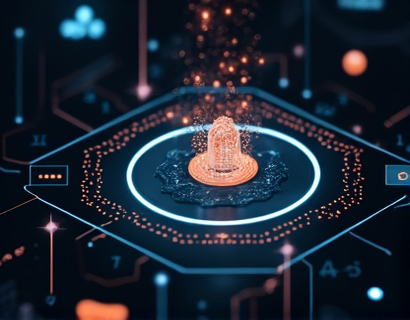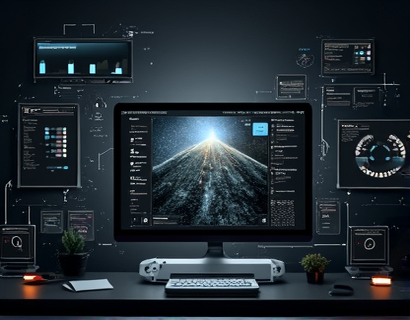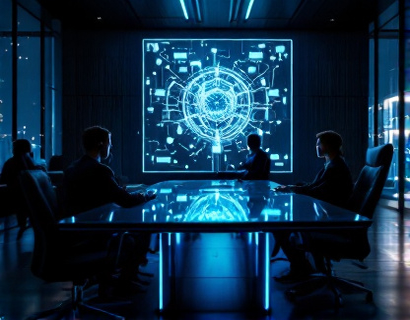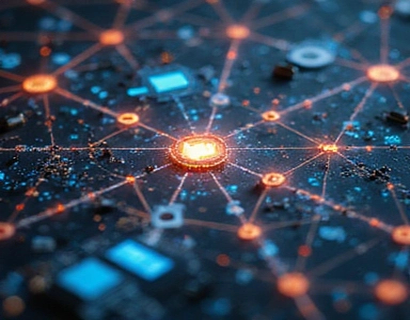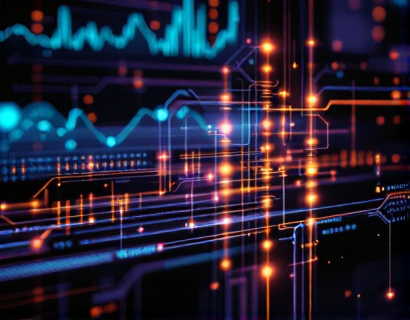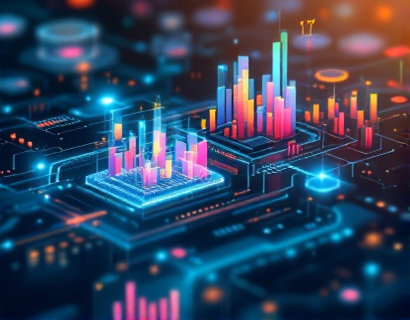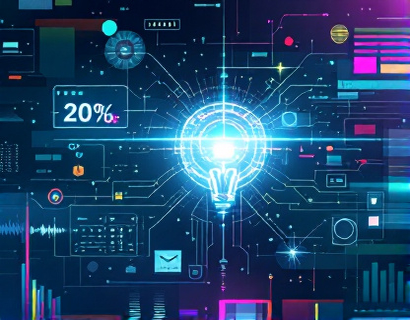Revolutionizing Digital Solutions: The Synergy of Crypto and AI
The intersection of cryptocurrency and artificial intelligence (AI) is giving rise to a new era of digital innovation, one that promises to transform how we interact with technology and conduct business. This synergy is not just a trend but a fundamental shift in the way tech pioneers and early adopters approach digital solutions. By merging the decentralized and secure nature of crypto with the intelligent and adaptive capabilities of AI, we are witnessing the creation of powerful tools that enhance efficiency, security, and user experience across various sectors.
Understanding the Basics: Crypto and AI
To fully appreciate the impact of this convergence, it's essential to understand the core concepts of both technologies. Cryptocurrency, at its core, is a digital or virtual currency that uses cryptography for security and operates on a decentralized network, typically a blockchain. This decentralization eliminates the need for intermediaries, making transactions faster, cheaper, and more secure. On the other hand, AI refers to the simulation of human intelligence processes by machines, particularly computer systems. These processes include learning (the acquisition of information and rules for using it), reasoning (using rules to reach approximate or definite conclusions), and self-correction.
When combined, these technologies leverage each other's strengths. AI can analyze vast amounts of data from blockchain transactions to identify patterns, predict trends, and automate processes. Conversely, the security and transparency of blockchain provide an ideal environment for AI algorithms to operate without the risk of data tampering or breaches.
The Transformative Impact on Finance
One of the most significant areas where crypto and AI are making waves is in the financial sector. Traditional banking systems are being disrupted by decentralized finance (DeFi) platforms, which use smart contracts on blockchain to offer services like lending, borrowing, and trading without intermediaries. AI enhances these platforms by providing sophisticated risk assessment tools, fraud detection systems, and personalized financial advice. For instance, AI-driven bots can analyze market data and predict price movements, helping users make informed investment decisions.
Moreover, the integration of AI in crypto trading has led to the development of algorithmic trading strategies that can execute trades at optimal times, maximizing profits and minimizing losses. These strategies are continuously learning and adapting to market conditions, a capability that human traders cannot match. The result is a more efficient and accessible financial ecosystem.
Enhancing Security and Privacy
Security and privacy are paramount in the digital age, and the combination of crypto and AI offers robust solutions. Blockchain's inherent security features, such as immutability and transparency, are bolstered by AI's ability to detect and prevent anomalies and threats. AI-powered security systems can monitor blockchain networks in real-time, identifying suspicious activities and potential vulnerabilities before they can be exploited. This proactive approach to security is crucial for maintaining trust in decentralized systems.
Privacy is another area where this synergy shines. Cryptocurrencies like Monero and Zcash use advanced cryptographic techniques to ensure transaction anonymity. AI can further enhance this by developing more sophisticated methods to protect user identities and data. For example, AI can generate complex, dynamic keys for transactions, making it extremely difficult for unauthorized parties to trace or intercept information.
Optimizing Supply Chain Management
The supply chain industry is another sector that stands to benefit greatly from the fusion of crypto and AI. Traditional supply chains are often plagued by inefficiencies, lack of transparency, and high costs. Blockchain provides a decentralized ledger that can track products from origin to destination, ensuring authenticity and reducing fraud. AI, with its predictive analytics and optimization capabilities, can streamline operations, reduce delays, and lower costs.
For instance, AI can analyze data from various sources, including sensors on shipping containers, to predict and prevent delays. Smart contracts on the blockchain can automate payments and ensure compliance with contractual obligations, all in a transparent and tamper-proof manner. This combination not only enhances efficiency but also builds trust among all parties involved.
Revolutionizing Healthcare
In healthcare, the integration of crypto and AI is paving the way for more secure, efficient, and patient-centric solutions. Patient data, which is highly sensitive, can be securely stored and shared using blockchain technology. AI can analyze this data to identify patterns, predict disease outbreaks, and personalize treatment plans. The use of AI in drug discovery and development is also accelerating, with machine learning algorithms capable of analyzing vast datasets to identify potential drug candidates more quickly and accurately.
Moreover, blockchain-based platforms can facilitate secure and transparent clinical trials, ensuring data integrity and compliance with regulatory standards. Patients can have more control over their health data, choosing who can access it and for what purpose, all while maintaining privacy and security.
Transforming the Internet of Things (IoT)
The Internet of Things (IoT) is another domain where crypto and AI are driving innovation. IoT devices generate enormous amounts of data, which can be overwhelming to manage and analyze. AI algorithms can process this data in real-time, extracting valuable insights and enabling smart decision-making. Blockchain ensures that this data is secure and tamper-proof, which is crucial for applications in smart homes, industrial automation, and urban management.
For example, in smart cities, AI can optimize traffic flow, energy consumption, and waste management by analyzing data from IoT devices. Blockchain can secure these transactions and ensure that data is not manipulated. This synergy leads to more efficient, sustainable, and responsive urban environments.
Challenges and Considerations
While the potential of combining crypto and AI is vast, there are challenges that need to be addressed. One of the primary concerns is regulatory uncertainty. Both crypto and AI are still evolving fields, and regulatory frameworks are often lagging behind technological advancements. This can create legal and operational challenges for businesses looking to implement these technologies.
Another challenge is the technical complexity involved in integrating these systems. Developers need a deep understanding of both blockchain and AI to create effective solutions. Additionally, there is the issue of scalability. While blockchain is secure, it can be slow and resource-intensive, which may not be suitable for all applications. AI models, especially those requiring extensive training, can also be computationally demanding.
Despite these challenges, the benefits of this synergy are compelling. As the technology matures and regulations evolve, we can expect to see more widespread adoption and innovative applications across various industries.
The Future Landscape
Looking ahead, the integration of crypto and AI is poised to drive significant advancements in technology and society. As more tech pioneers and early adopters embrace these tools, we can expect to see a new generation of applications that are more secure, efficient, and user-friendly. The potential for decentralized applications (dApps) that combine the best of both worlds is immense, from decentralized social media platforms to autonomous financial systems.
The future also holds the promise of greater interoperability between different blockchain networks and AI systems, enabling seamless integration and collaboration. This could lead to the creation of a more interconnected and intelligent digital ecosystem, where data flows freely and securely, and intelligent systems work together to solve complex problems.
For tech innovators and early adopters, the key is to stay informed and adaptable. By understanding the fundamentals of both crypto and AI and keeping abreast of the latest developments, they can position themselves at the forefront of this technological revolution. The opportunities are vast, and the impact will be profound, reshaping the digital landscape for years to come.







